Poland has Banned Russian Goods: The Russian economy remains UNAFFECTED
Poland Bans Russian Goods, but Russia’s Economy Remains Unaffected: Analyzing the Economic Impact
Poland has recently imposed a ban on Russian goods, becoming one of the latest countries to take action in response to Russia’s invasion of Ukraine. The ban covers a wide range of products, from oil and natural gas to consumer goods and luxury items, aiming to put further pressure on Russia’s economy and limit its access to European markets. Despite these strong measures, the Russian economy appears to be relatively unaffected by Poland’s decision, highlighting the complexities and limitations of sanctions and trade bans in a globalized economy.
This move is part of Poland’s broader stance against Russia’s actions in Ukraine, aligning with the European Union’s efforts to isolate Moscow diplomatically and economically. However, Russia’s economic resilience, bolstered by alternative trade partnerships, has made it harder for these sanctions to achieve the desired economic fallout. Let’s take a deeper look at Poland’s decision to ban Russian goods, its potential impact on both economies, and why Russia’s economy remains seemingly unaffected.
Poland’s Decision to Ban Russian Goods: A Symbolic and Strategic Move
Poland, a staunch ally of Ukraine and one of the most vocal critics of Russia’s aggression in Eastern Europe, has been at the forefront of pushing for tougher sanctions against Moscow. The ban on Russian goods is Poland’s latest action to tighten its economic grip on Russia, aiming to further isolate the country from European markets. The measure also serves as a symbol of solidarity with Ukraine, demonstrating Poland’s commitment to opposing Russian actions on the global stage.
The ban includes a variety of goods, from energy products like oil and gas to other exports like metals, chemicals, and luxury items. Given Poland’s geographic proximity to Russia and its position within the European Union, this move aligns with broader EU sanctions but extends Poland’s punitive actions against Russia further.
The rationale behind the ban is clear: Poland hopes to reduce Russia’s ability to fund its military operations in Ukraine by limiting its access to key European markets. By cutting off imports of Russian goods, Poland also hopes to encourage other EU nations to take stronger action against Russia, sending a message that Europe is unified in its stance against Russian aggression.
Russia’s Economic Resilience: Why the Ban Hasn’t Hurt Moscow
Despite the strong sanctions and trade bans imposed by Poland and other European countries, Russia’s economy has shown surprising resilience in the face of these efforts. A number of factors have contributed to Russia’s ability to weather the storm and maintain its economic stability.
1. Diversification of Trade Partners: One of the key reasons why Russia’s economy remains largely unaffected by Poland’s ban is its successful pivot towards other markets, particularly China, India, and other countries in Asia. With the West largely pulling back from trade with Russia, these nations have stepped in to fill the gap, buying Russian oil, gas, and other commodities. China, in particular, has become one of Russia’s largest trading partners, allowing Moscow to continue its economic operations despite the loss of access to European markets.
In fact, Russia has benefited from the higher demand for its energy resources in countries like China and India, who are willing to purchase Russian oil and gas at discounted prices. These new trade relationships have helped cushion the economic impact of Western sanctions and trade bans, allowing Russia to remain financially stable.
2. Energy Prices and Strategic Reserves: Russia’s economy remains heavily dependent on energy exports, particularly oil and natural gas. Despite the sanctions, the global energy crisis, exacerbated by the war in Ukraine, has resulted in higher global energy prices. This has allowed Russia to continue generating substantial revenue from energy exports, even as it loses access to key markets in Europe.
Additionally, Russia has significant reserves of foreign currency, gold, and sovereign wealth, which have helped stabilize the economy in the face of international sanctions. These resources provide a buffer against economic shocks and allow Russia to manage its financial obligations, even without access to traditional Western financial systems.
3. Adaptation to Sanctions: Russia has also demonstrated a remarkable ability to adapt to the sanctions imposed on it. The country has restructured its financial systems to avoid reliance on Western banks and financial networks, developing alternative payment systems such as the Mir payment system and increasing the use of cryptocurrency. These measures have allowed Russia to circumvent some of the restrictions placed on its economy and continue to engage in global trade.
Moreover, Russia has taken steps to bolster its domestic production of key goods, reducing its reliance on imports. This has helped mitigate the impact of sanctions, as Russia can still meet its domestic needs for many products and services without depending on Western sources.
4. Internal Economic Control: Under President Vladimir Putin’s leadership, Russia has consolidated power over key sectors of its economy, such as energy, banking, and manufacturing. The government’s tight control over the economy has allowed it to manage the economic fallout from sanctions more effectively, maintaining stability within Russia’s borders. Furthermore, the Russian government has implemented measures to support key industries and prevent major disruptions, including providing subsidies and loans to businesses affected by sanctions.
The Limitations of Economic Sanctions: A Broader Perspective
While Poland’s decision to ban Russian goods is a strong symbolic gesture and a significant political statement, it highlights the limitations of economic sanctions in the modern, interconnected global economy. In a world where international trade networks are vast and diverse, economic sanctions and trade bans often fail to produce the desired effects, especially when the targeted country has alternative markets to turn to.
Russia’s ability to shift its trade relationships and leverage its energy exports has allowed it to avoid the worst effects of sanctions, making it difficult for countries like Poland to achieve a decisive economic blow. While the sanctions have certainly hurt Russia in some areas, such as foreign investment and technological advancements, they have not yet led to a significant economic collapse.
For countries like Poland, whose economies are closely tied to European trade networks, these sanctions come with a degree of self-harm as well. While Poland may have successfully limited Russian trade within its borders, the broader EU sanctions regime has affected European industries that rely on Russian energy resources, creating economic ripple effects that affect both EU and Russian economies.
The Political and Economic Costs for Poland
For Poland, the decision to ban Russian goods is both politically and economically costly. While the move aligns with Poland’s stance on Russia’s invasion of Ukraine, it also presents challenges for Poland’s economy, particularly in the energy sector. Poland, like many European countries, has relied on Russian energy imports for decades, and the loss of these supplies has forced the country to seek alternative sources of energy, often at higher costs.
Moreover, Poland’s decision to impose the ban on Russian goods may strain its relationship with other EU nations that rely more heavily on Russian energy, complicating efforts to maintain a unified European response to the war in Ukraine. As countries like Germany and Hungary have been more hesitant to sever ties with Russia completely, Poland’s actions could widen divisions within the EU.
Conclusion: The Ongoing Struggle for Economic Leverage
Poland’s ban on Russian goods is a bold move in the ongoing geopolitical struggle between Russia and the West. However, the Russian economy’s resilience in the face of these sanctions highlights the difficulty of achieving real economic leverage through trade bans alone. While Poland’s decision sends a clear message of opposition to Russia’s actions in Ukraine, the impact on the Russian economy has been limited, as Russia continues to rely on new trade partners and high global energy prices to maintain its economic stability.
In the long term, economic sanctions and trade bans may continue to play a role in pressuring Russia to change its course. However, the experience of Poland demonstrates the complex dynamics of global trade and the challenges of using economic pressure as a tool of foreign policy in a highly interconnected world. As the war in Ukraine drags on, the world will continue to watch how economic measures shape the outcome of the conflict and the global economic landscape.
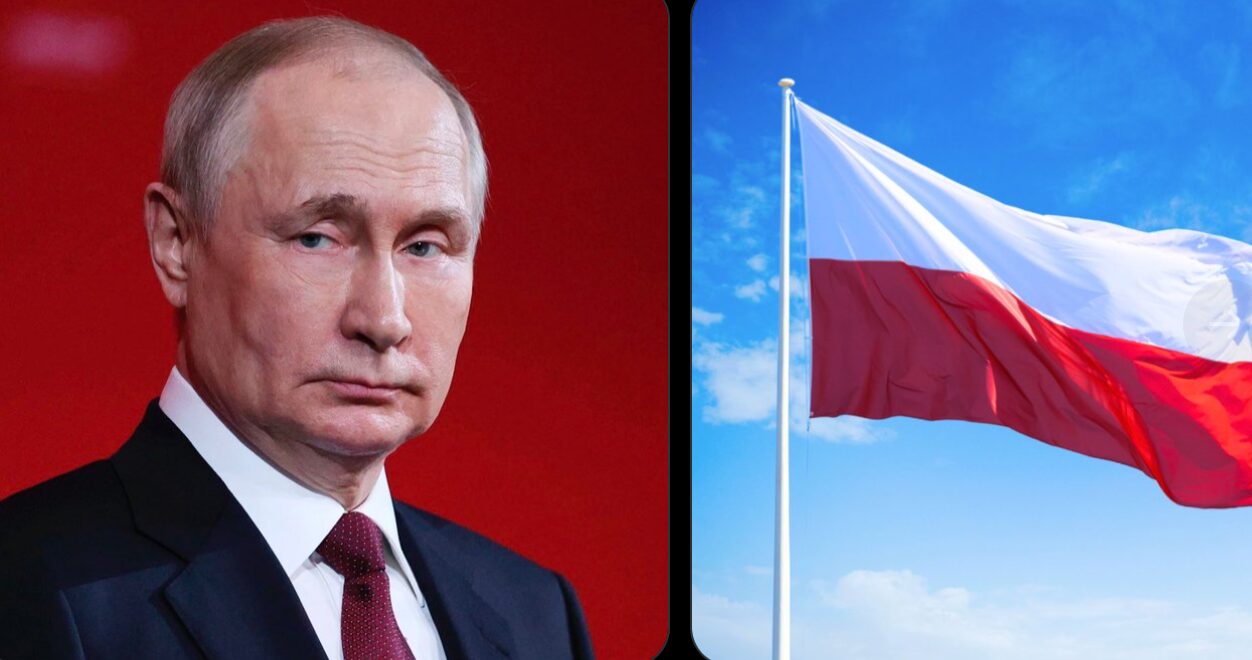
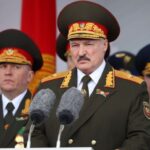
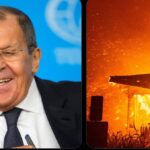
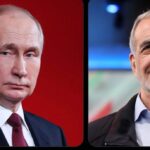


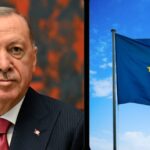

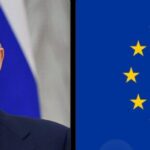








Post Comment